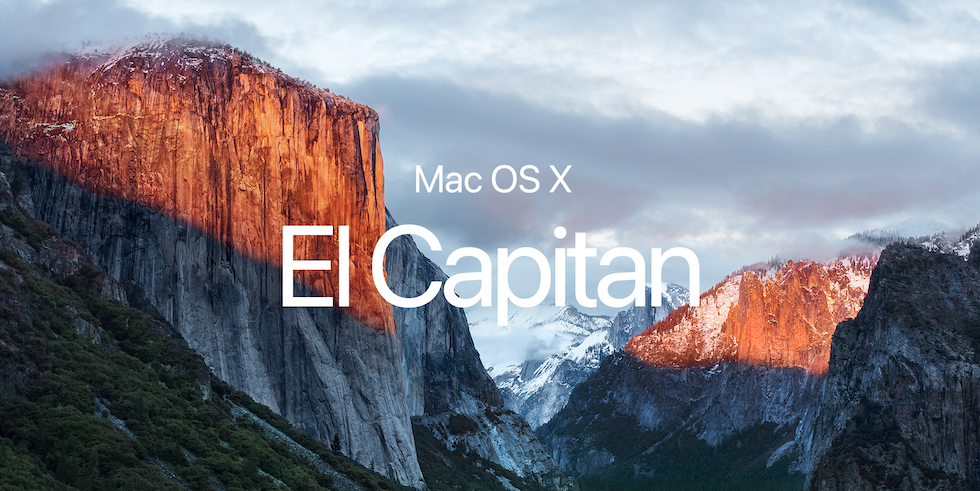OS X El Capitan includes features to improve the security, performance, design and usability of OS X. Compared to OS X Yosemite, Apple says that opening PDFs is four times faster, app switching and viewing messages in Mail is twice as fast and launching apps is 40% faster. The maximum amount of memory that could be allocated to the graphics processor has been increased from 1024 MB to 1536 MB on Macs with an Intel HD 4000 GPU. OS X El Capitan supports Metal, Apple's graphics API introduced in iOS 8 to speed up performance in games and professional applications. Apple's typeface San Francisco replaces Helvetica Neue as the system typeface. OS X El Capitan also adopts LibreSSL in replacement of OpenSSL used in previous versions.

OS X El Capitan is unsupported as of October 2018 and the last released update is OS X is OS X El Capitan 10.11.6
iTunes is no longer being updated, but is able to download driver updates to sync to newer devices. (iTunes is replaced by separate apps in macOS Catalina, including Music, TV, Podcasts, and Finder for syncing devices.)
OS X El Capitan (version 10.11) is the twelfth major release of macOS (named OS X at the time of El Capitan’s release), Apple Inc.’s desktop and server operating system for Macintosh. It focuses mainly on performance, stability, and security. Following the California location-based naming scheme introduced with OS X Mavericks, El Capitan was named after a rock formation in Yosemite National Park. El Capitan is the final version to be released under the name OS X. OS X El Capitan received far better reviews than did Yosemite.
All Macintosh products that can run Mountain Lion, Mavericks, or Yosemite can run El Capitan, although not all of its features will work on older models. For example, Apple notes that the newly available Metal API is available on “all Macs since 2012”.
These computers can run El Capitan, provided they have at least 2GB of RAM, with an exception:
iMac: Mid 2007 or later
MacBook: Aluminum Late 2008 or later
MacBook Air: Late 2008 or later
MacBook Pro: Mid 2007 or later
Mac Mini: Early 2009 or later
Mac Pro: Early 2008 or later
Xserve: Early 2009
Of these computers, the following models were equipped with 1GB RAM as the standard option on the base model when they were shipped originally. They can only run OS X El Capitan if they have at least 2GB of RAM.
iMac: Mid 2007 – Early 2008
Mac Mini: Early 2009
The following computers support features such as Handoff, Instant Hotspot, AirDrop between Mac computers and iOS devices, as well as the new Metal API:
iMac: Late 2012 or later
MacBook: Early 2015 or later
MacBook Air: Mid 2012 or later
MacBook Pro: Mid 2012 or later
Mac Mini: Late 2012 or later
Mac Pro: Late 2013
OS X El Capitan is available for download on Apple’s official site.
Latest Update:
This update is recommended for all OS X El Capitan users.
The OS X El Capitan v10.11.6 Update improves the stability, compatibility, and security of your Mac, and is recommended for all users.
This update:
- Resolves an issue that may prevent settings from being saved in accounts with parental controls enabled.
- Resolves an issue that prevented some network devices, such as speakers and multifunction printers, from accessing SMB share points.
Enterprise content:
- Improves startup time when connecting to a NetBoot server.
- Resolves an issue that may prevent startup from a NetBoot image created with an OS X v10.11.4 or OS X v10.11.5 installer.
- Resolves an issue that may cause Active Directory authentication to take longer than expected.
See Apple Security Updates for detailed information about the security content of this update.
Download OS X El Capitan 10.11.6 Combo Update
File Size: 1.5 GB
Source: apple.com
